Finanzintermediäre und die Realwirtschaft
Diese Forschungsgruppe zielt darauf ab, den Zusammenhang zwischen Finanzintermediation und realer Aktivität zu verstehen, indem sie mehrere potenzielle Kanäle untersucht, wobei sie sich sowohl auf die direkten Auswirkungen auf Unternehmen unter Verwendung umfangreicher Mikrodaten als auch auf das Verständnis des Zusammenhangs zwischen Kreditmärkten und gesamtwirtschaftlicher Aktivität konzentriert.
Forschungscluster
Produktivität und InstitutionenIhr Kontakt

- Abteilung Finanzmärkte
Referierte Publikationen
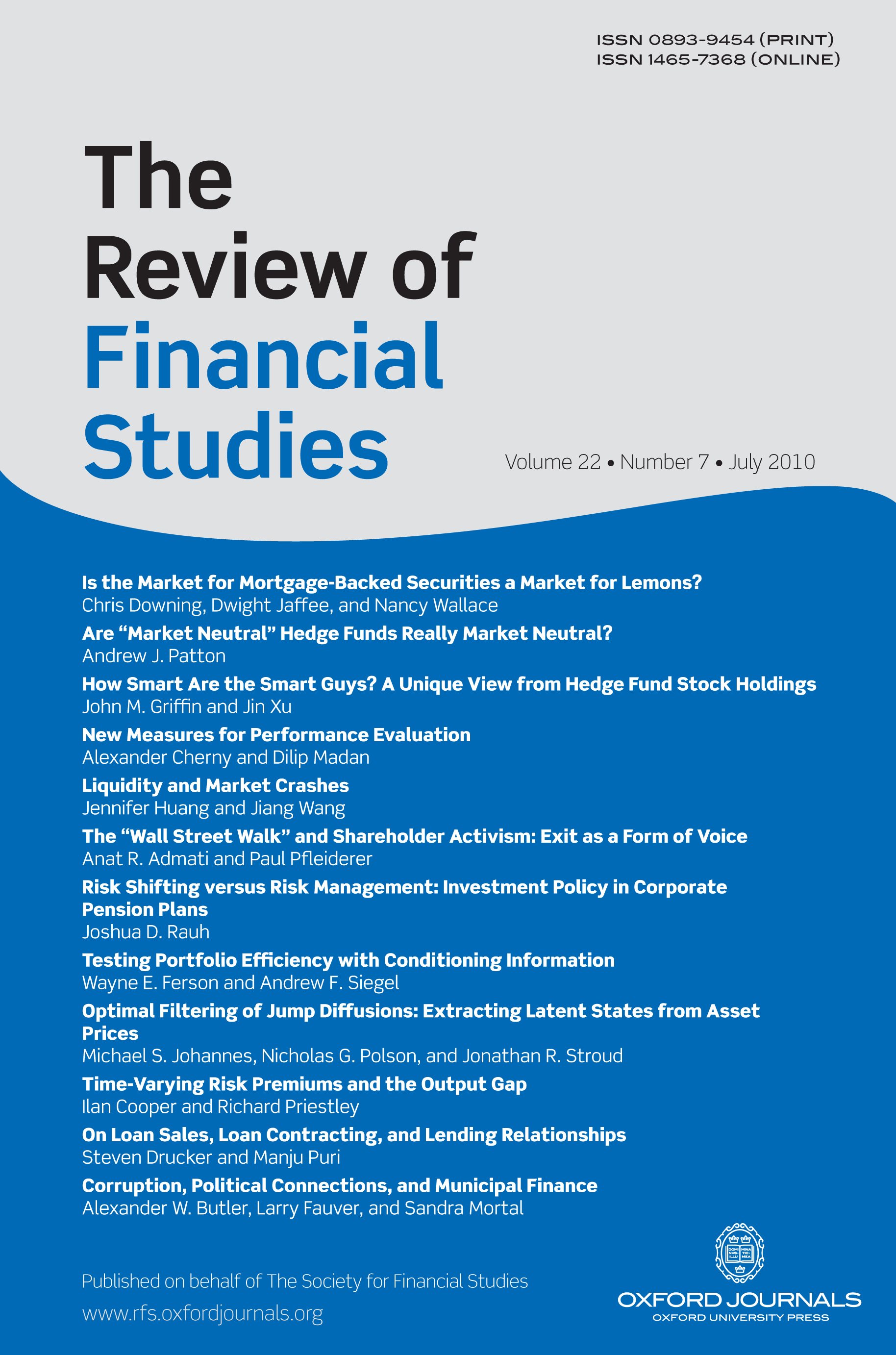
Corporate Loan Spreads and Economic Activity
in: Review of Financial Studies, Nr. 2, 2025
Abstract
<p>We investigate the predictive power of loan spreads for forecasting business cycles, specifically focusing on more constrained, intermediary-reliant firms. We introduce a novel loan-market-based credit spread constructed using secondary corporate loan-market prices over the 1999 to 2023 period. Loan spreads significantly enhance the prediction of macroeconomic outcomes, outperforming other credit-spread indicators. We also explore the underlying mechanisms and differentiate between borrower fundamentals and financial frictions. Evidence suggests that supply-side frictions are a decisive factor in the forecasting ability of loan spreads.</p>
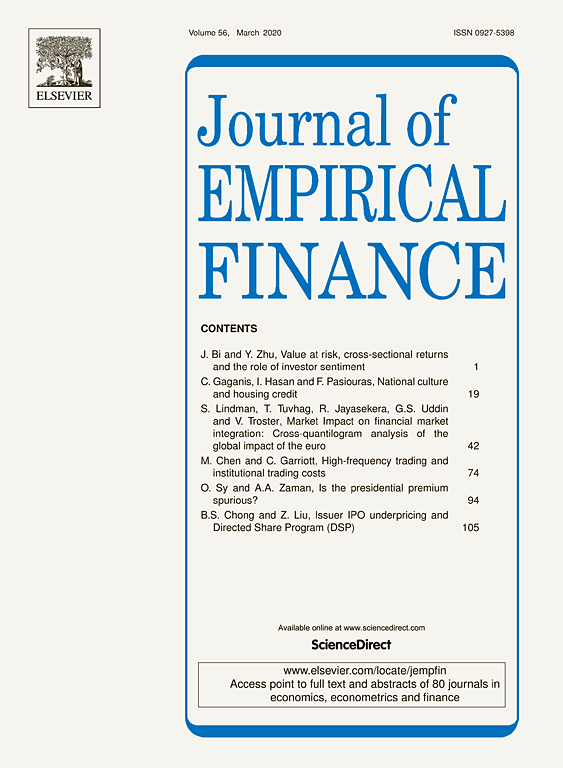
Banker Directors on Board and Corporate Tax Avoidance
in: Journal of Empirical Finance, December 2024
Abstract
<p>We investigate how shareholder-debtholder conflict of interest affects the corporate tax avoidance using a unique setting of the affiliated and unaffiliated commercial bankers’ board representation. Consistent with the notion that board representation grants lenders’ access to private information that helps monitor and influence firms’ tax practice, we find that appointments of affiliated banker directors significantly reduce firms’ tax avoidance behavior, while appointing unaffiliated banker directors shows no such effect. The impact of affiliated banker directors on alleviating tax avoidance is stronger among firms with severer conflict of interest between shareholders and debtholders, specifically among firms with weaker corporate governance, higher financial leverage and higher CEO stock ownership.</p>
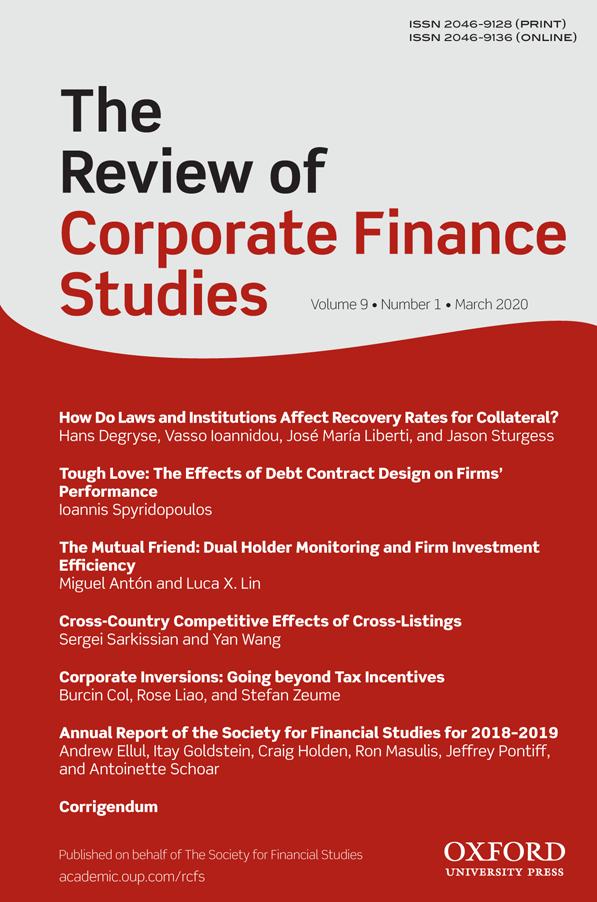
Credit Supply Shocks: Financing Real Growth or Takeovers?
in: Review of Corporate Finance Studies, Nr. 2, 2024
Abstract
<p>How do firms invest when financial constraints are relaxed? We document that firms affected by a large positive credit supply shock predominantly increase borrowing for transaction-based purposes. These treated firms have larger asset and employment growth rates; however, growth entirely stems from the increased takeover activity. Announcement returns indicate a low quality of the credit-supply-induced takeover activity. These results offer the possibility that credit-driven growth can simply reflect redistribution, rather than net gains in assets or employment.</p>
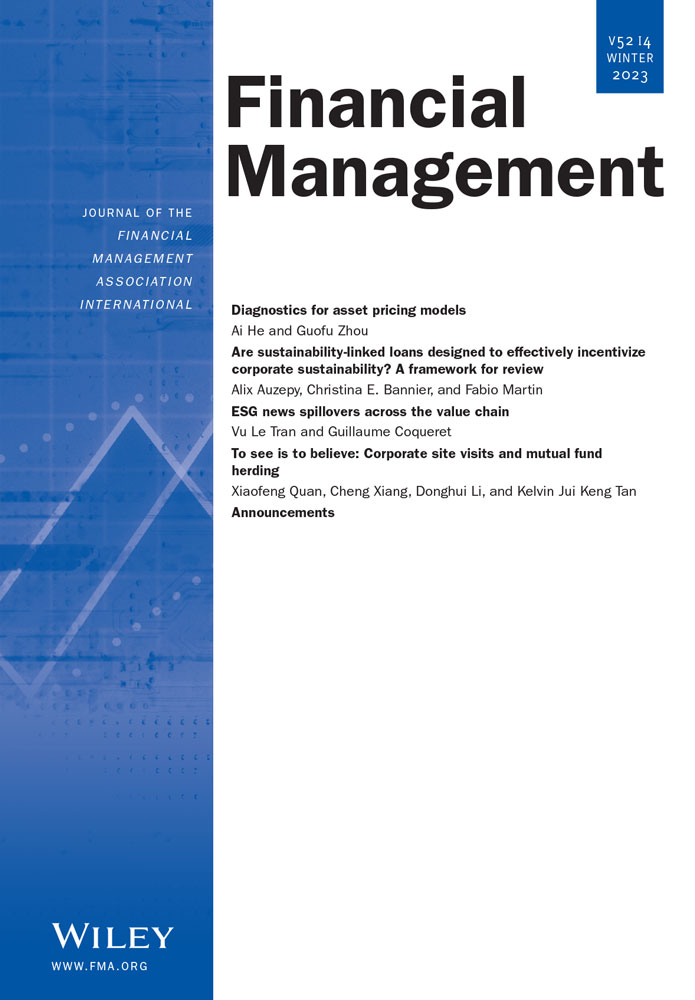
Financial Debt Contracting and Managerial Agency Problems
in: Financial Management, Nr. 1, 2024
Abstract
<p>This paper analyzes if lenders resolve managerial agency problems in loan contracts using sweep covenants. Sweeps require a (partial) prepayment when triggered and are included in many contracts. Exploiting exogenous reductions in analyst coverage due to brokerage house mergers and closures, we find that increased borrower opacity significantly increases sweep use. The effect is strongest for borrowers with higher levels of managerial entrenchment and if lenders hold both debt and equity in the firm. Overall, our results suggest that lenders implement sweep covenants to mitigate managerial agency problems by limiting contingencies of wealth expropriation.</p>

Economic Preferences for Risk-Taking and Financing Costs
in: Journal of Corporate Finance, June 2023
Abstract
<p>We hypothesize and empirically establish that economic preferences for risk-taking in different subnational regions affect firm financing costs. We study this hypothesis by hand-matching firms' regions worldwide with the corresponding regional economic risk-taking preferences. We first show that higher regional risk-taking is positively associated with several measures of firm risk and investments. Subsequently, our baseline results show that credit and bond pricing increase when risk-taking preferences increase. For the loan of average size and maturity a one-standard-deviation increase in regional risk-taking increases interest expense by $0.54 million USD. We also find that these results are demand (firm)-driven and stronger for firms with more local shareholders.</p>
Arbeitspapiere

Too Poor to Be Green? The Effects of Wealth on the Residential Heating Transformation
in: SSRN Working Paper, 2024
Abstract
<p>Using the near-universe of Danish owner-occupied residential houses, we show that an exogenous increase in wealth significantly increases the likelihood to switch to green heating. We estimate an elasticity of one at the median of the wealth distribution, i.e., a 10% increase in wealth increase raises green heating adoption by 10%. Effects are heterogeneous along the wealth distribution: all else equal, a redistribution of wealth from rich households to poor households can significantly increase green heating adoption. We further explore potential channels of our findings (pro-social preferences, financial constraints, and luxury goods interpretation). Our results emphasize the role of economic growth for the green transition.</p>
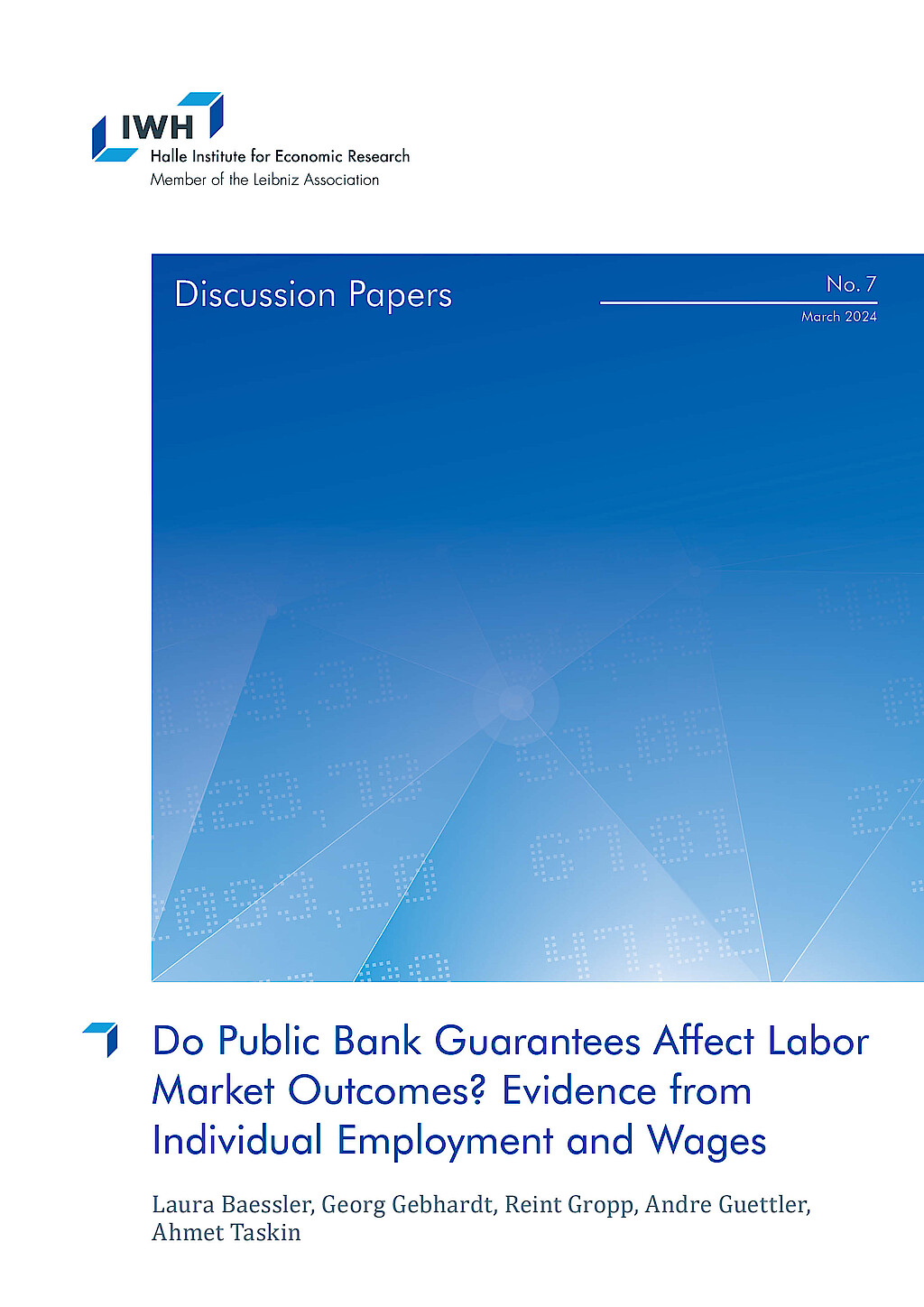
Do Public Bank Guarantees Affect Labor Market Outcomes? Evidence from Individual Employment and Wages
in: IWH Discussion Papers, Nr. 7, 2024
Abstract
<p>We investigate whether employees in Germany benefit from public bank guarantees in terms of employment probability and wages. To that end, we exploit the removal of public bank guarantees in Germany in 2001 as a quasi-natural experiment. Our results show that bank guarantees lead to higher employment, but lower wage prospects for employees after working in affected establishments. Overall the results suggest that employees do not benefit from bank guarantees.</p>

Out of Sight, out of Mind: Divestments and the Global Reallocation of Pollutive Assets
in: SSRN Working Papers, 2023
Abstract
<p>Large emitters reduced their carbon emissions by around 11-15% after the 2015 Paris Agreement (“the Agreement”) relative to public firms that are less in the limelight. We show that this effect is predominantly driven by divestments. Large emitters are 9 p.p. more likely to divest pollutive assets in the post-Agreement period, an increase of over 75%. This divestment effect comes from asset sales and not from closures of pollutive facilities. There is no evidence for increased engagements in other emission reduction activities. Our results indicate significant global asset reallocation effects after the Agreement, shifting emissions out of the limelight.</p>

Capital Misallocation and Innovation
in: SSRN Solutions Research Paper Series, 2020
Abstract
This paper documents that "zombie" lending by undercapitalized banks distorts competition and impedes corporate innovation. This misallocation of capital prevents both the exit of zombie and entry of healthy firms in affected industries adversely impacting output and competition. Worse, capital misallocation depresses patent applications, particularly in high technology- and R&D-intensive sectors, and industries with neck- and-neck competition. We strengthen our results using an IV approach to address reverse causality and innovation survey data from the European Commission. Overall, our results are consistent with externalities imposed on healthy firms through the misallocation of capital.








